If you’ve landed on this page, then you’re looking for advice on growing Rocket (Arugula). Firstly let’s explain the name thing so there’s no confusion. Rocket is the English name for Arugula, there are a number of varieties but this post covers them all.
What You Will Learn In This Post
By reading this post you will learn all about companion planting Arugula (Rocket), things like:-
- How companion planting will help keep bad bugs away.
- Which plants to grow with arugula to improve taste, health and yield.
- Which companion planting combinations can cause arugula to die off completely.
- The best conditions for growing healthy arugula plants.
- The correct soil types for getting the best from your arugula.
- The optimum time to sow arugula seeds for best results.
Companion Planting Arugula
Arugula is the name given to a group of plants known elsewhere as Rocket, Rucola, Salad Rocket, and Italian Cress. This plant originated in the Mediterranean and has spread throughout the Western world. It’s a member of the Brassica family and has the same likes and dislikes as the rest of the family.
The benefits of companion planting Arugula
There is growing scientific proof that intercropping and plant associations, which in laymens terms is companion planting enhances the growth and health of certain plants and plant groups. See this article from science direct for more information. It stands to reason that if other members of the Brassica family benefit from companion planting, then so will arugula.
What Grows Well With Arugula
Let’s look at what to grow with arugula
Onions and Arugula
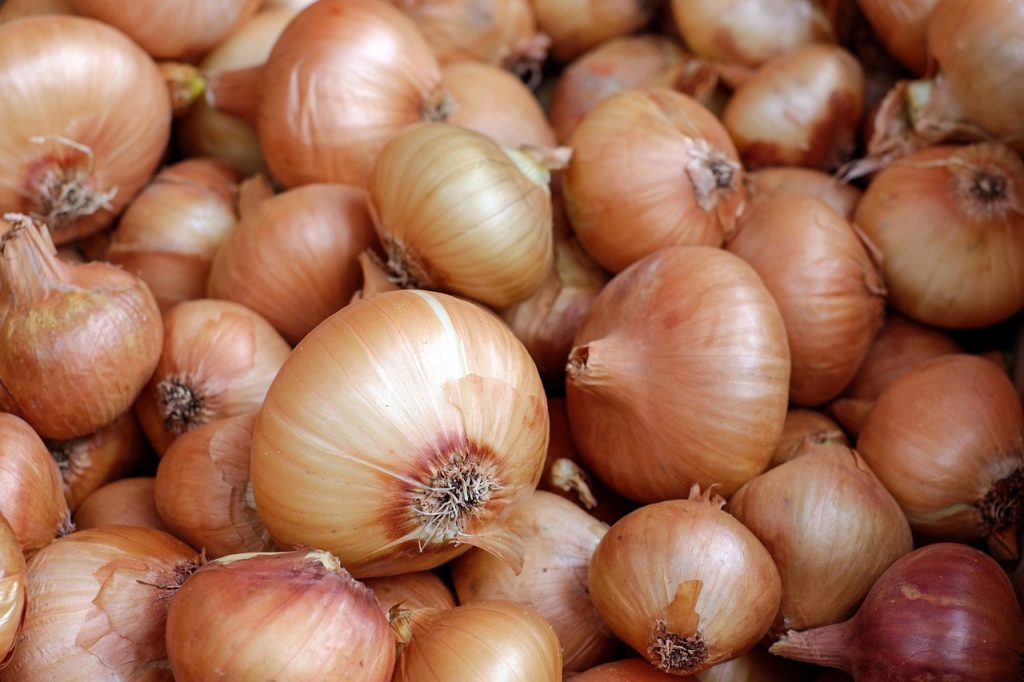
Growing onions and arugula as companion plants will help to keep the cabbage whites from laying eggs on them. The caterpillars can decimate plants in an incredibly short time.
Garlic and Arugula
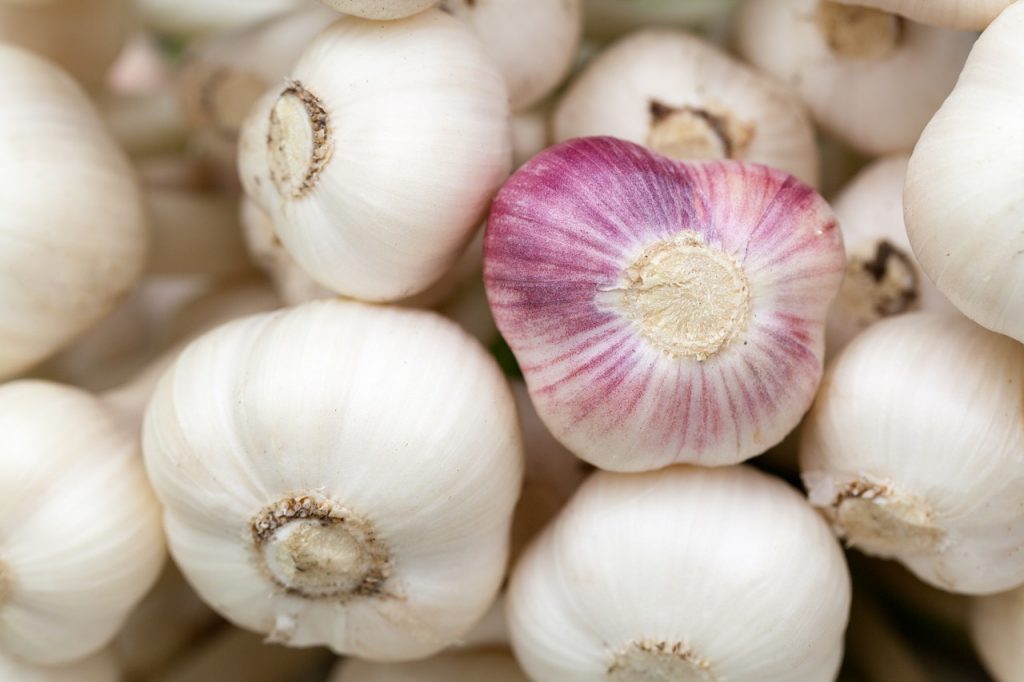
Another strongly aromatic plant, garlic will help to disguise the arugula plants from cabbage whites and whitefly.
Beans and Arugula
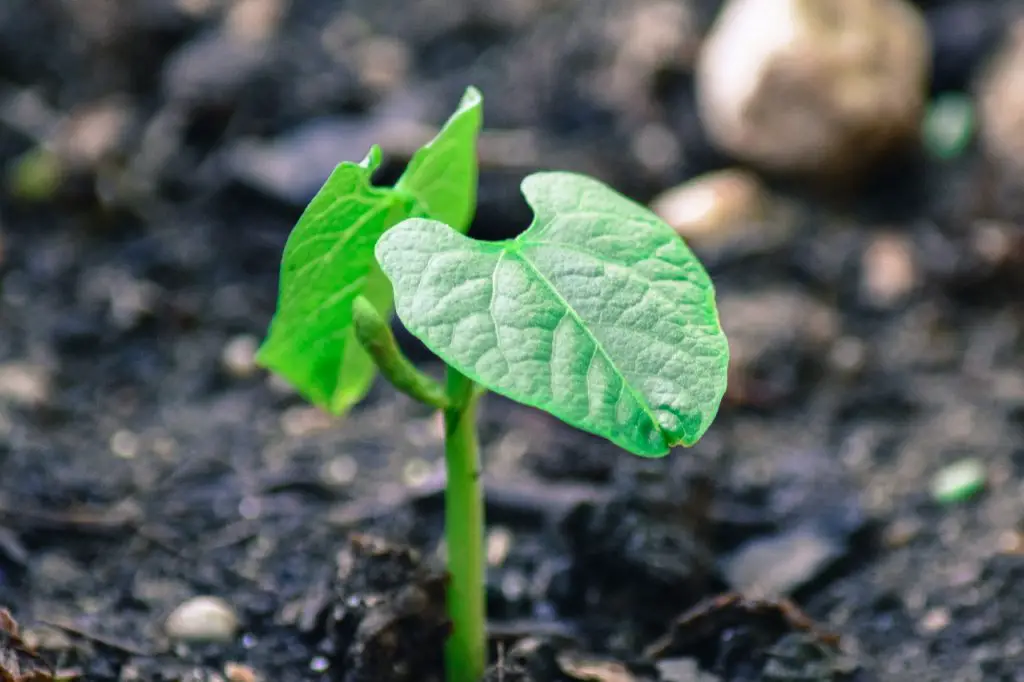
Growing beans with arugula is beneficial due to the extra nitrogen available to the arugula plants. This is because beans fix nitrogen in the air and leave the nitrogen in the soil for the arugula. If you do use beans as a companion plant for arugula, then don’t also use onions or any member of the allium family.
Alliums produce a compound that kills the bacteria that legume crops like beans need to fix nitrogen. So always keep legumes away from alliums, this is one combination that will not work.
Cucumbers and Arugula
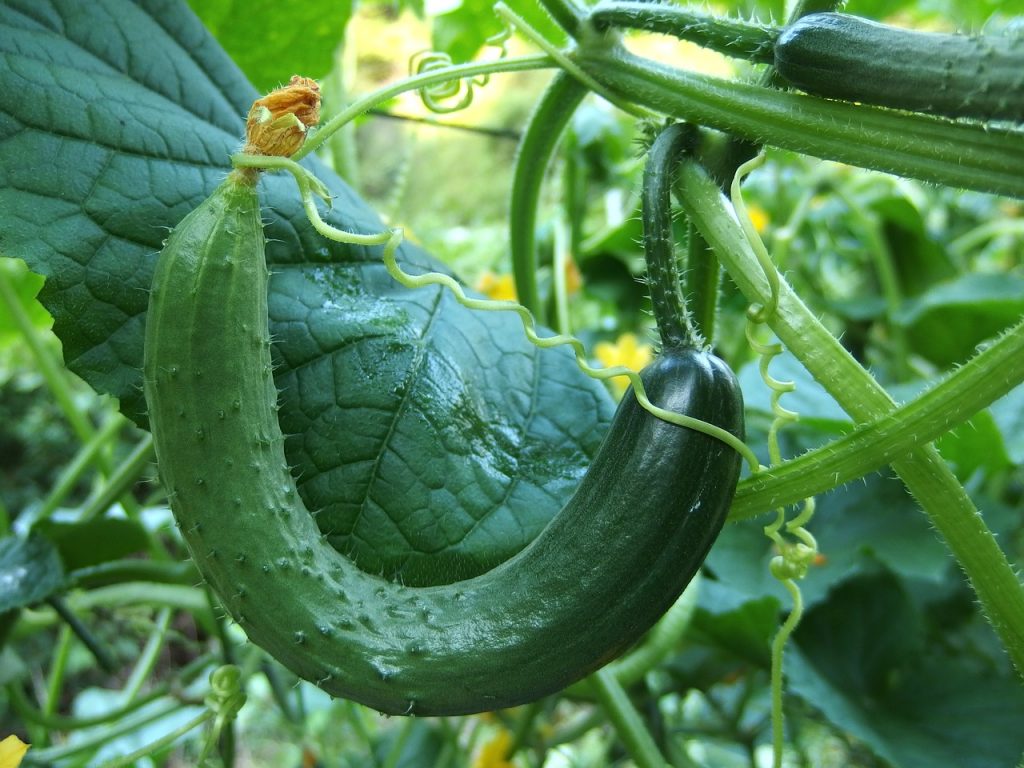
As cucumbers grow upwards, there is a lot of free space around the plants and this is ideal for growing arugula. Also the leaf spread from the cucumber plants will help to shade arugula during hot spells which will help preventing arugula from bolting.
Beetroot and Arugula
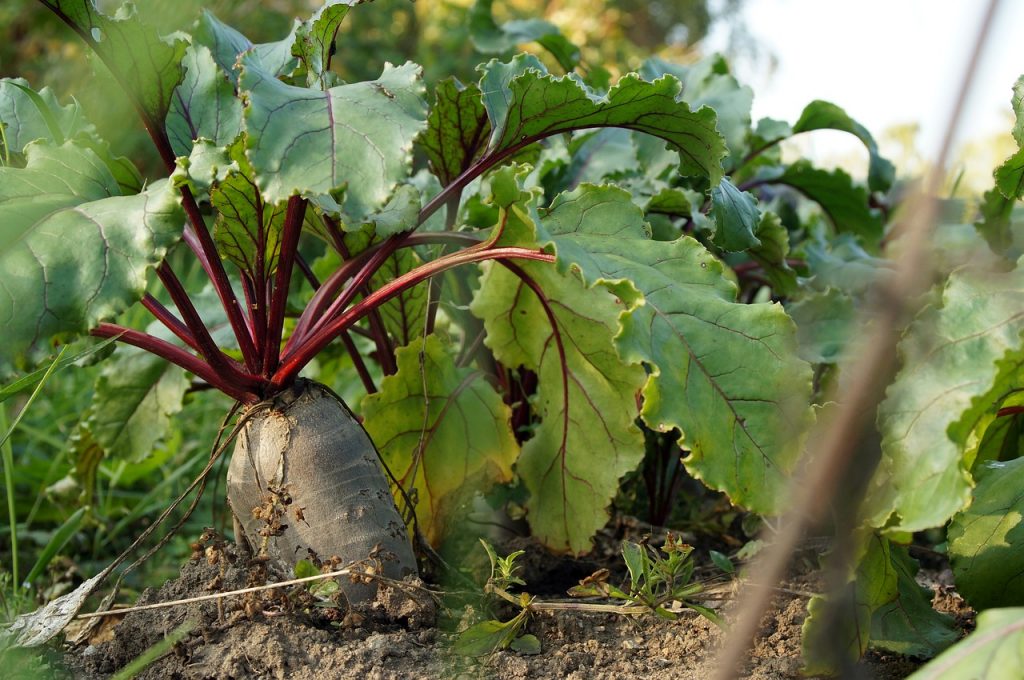
Arugula will do well growing with beetroot, leaf beet, and spinach as they will all help to keep arugula shaded. As arugula prefers cooler conditions to grow, keeping it shaded will help to keep it productive during hot spells.
Celery and Arugula
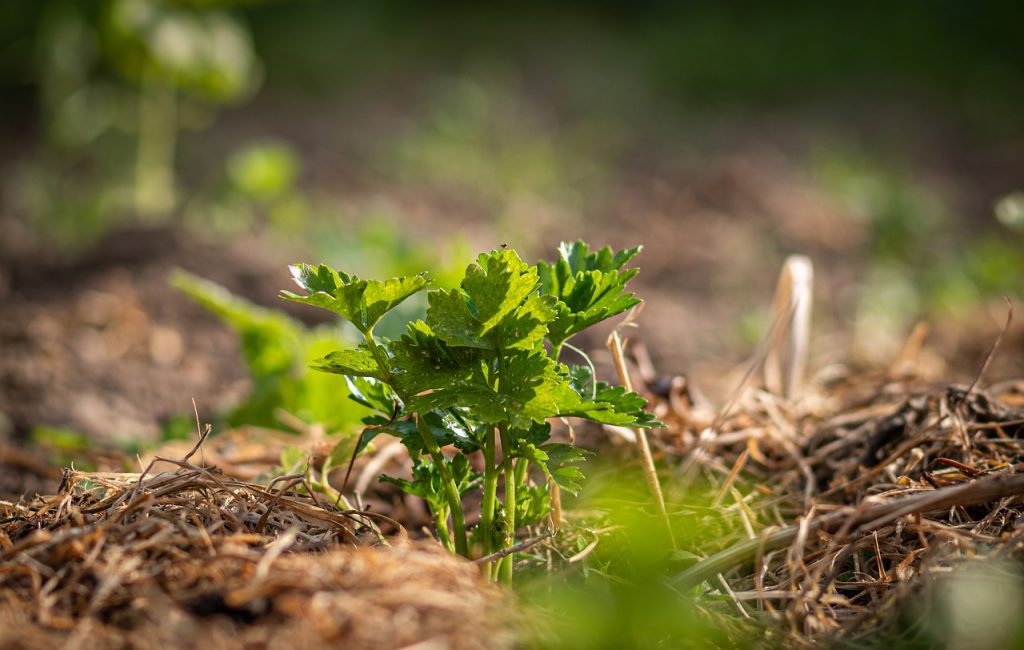
Originally a marsh plant, celery is an ideal companion for arugula because they both enjoy moist soil.
Lettuce and Arugula
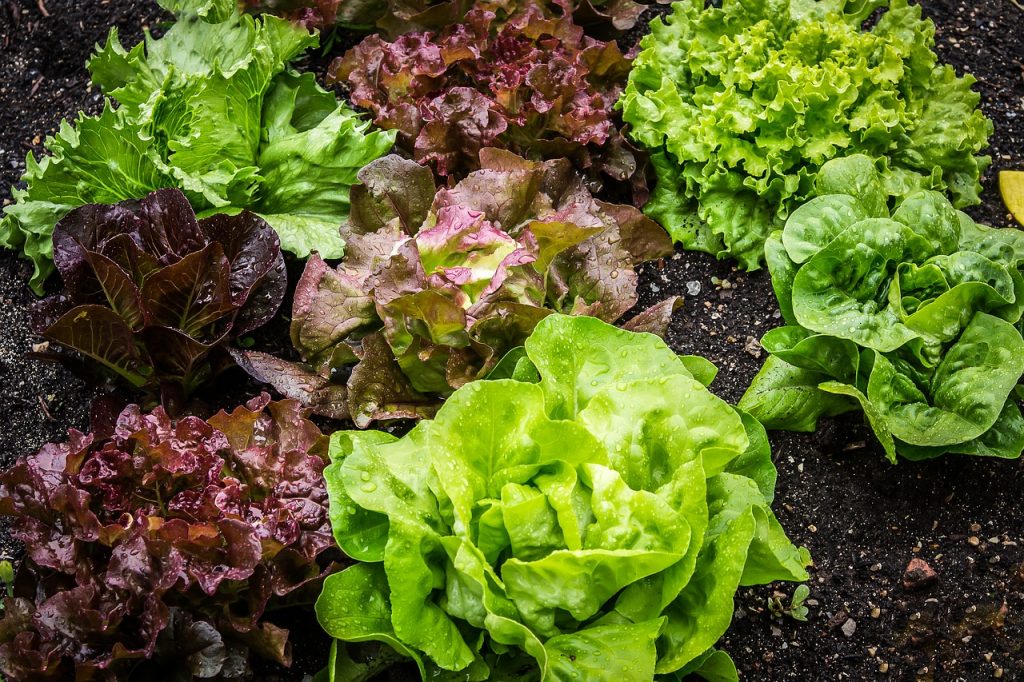
As with leaf beet and spinach, lettuce will help to shade arugula. Lettuce also prefers cooler conditions and so it makes a great companion plant for arugula.
Carrots and Arugula
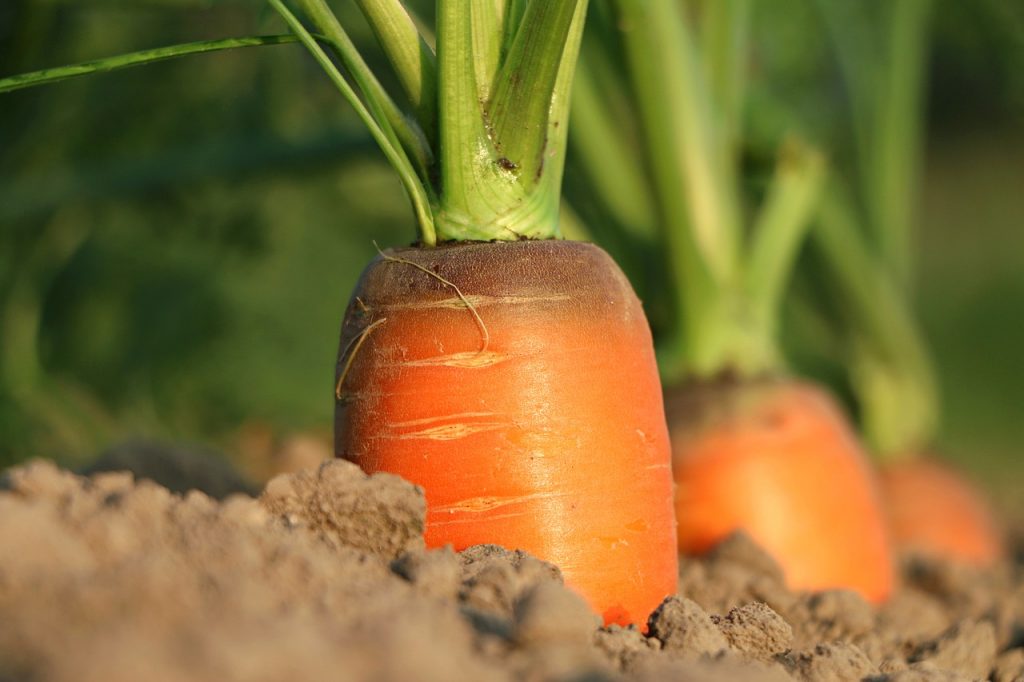
Utilise the space around the carrot rows with arugula plants and benefit from saving space in your garden.
Radishes and Arugula
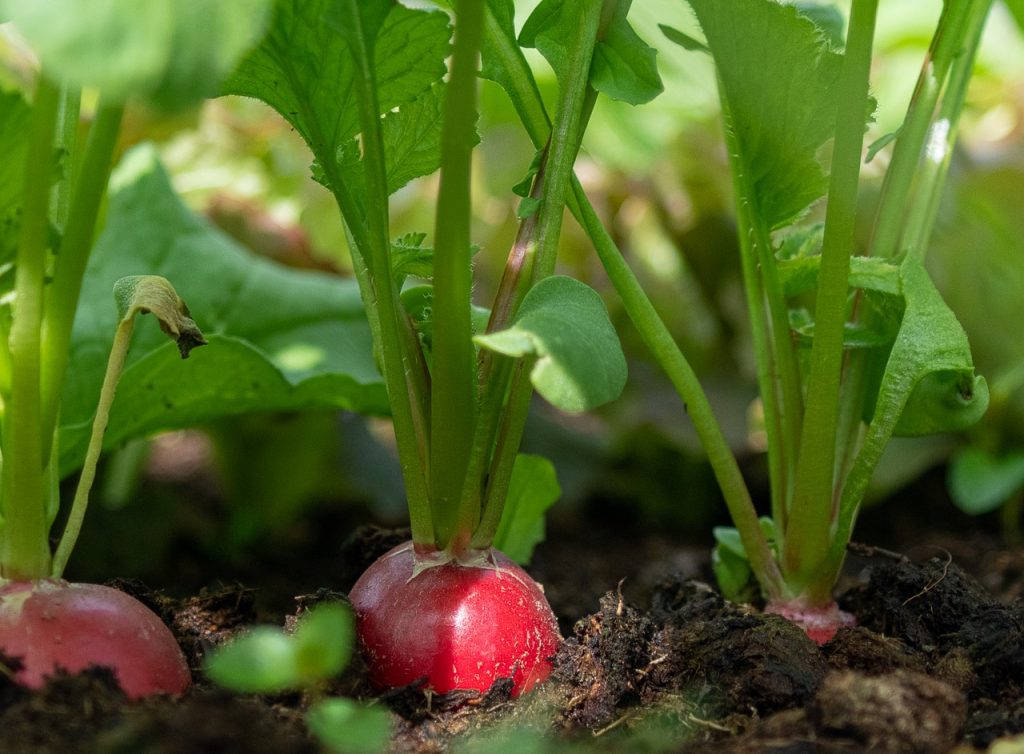
Both of these are members of the brassica family, but radishes are much more prone to flea beetle damage. So growing radish with arugula will not only keep the arugula free from severe damage but you will be warned of an impending attack to your rocket plants.
Dealing With Flea Beetles
On the subject of flea beetles, there are a couple of ways to help prevent them being a problem in your garden. Firstly give young seedlings a good watering and keep the soil around them moist at all times. Secondly, mulch around all plants to prevent the flea beetle laying eggs in your soil.
Companion Planting Herbs With Arugula
There are some great herbs to grow in companion with arugula and they include:-
Dill and Arugula
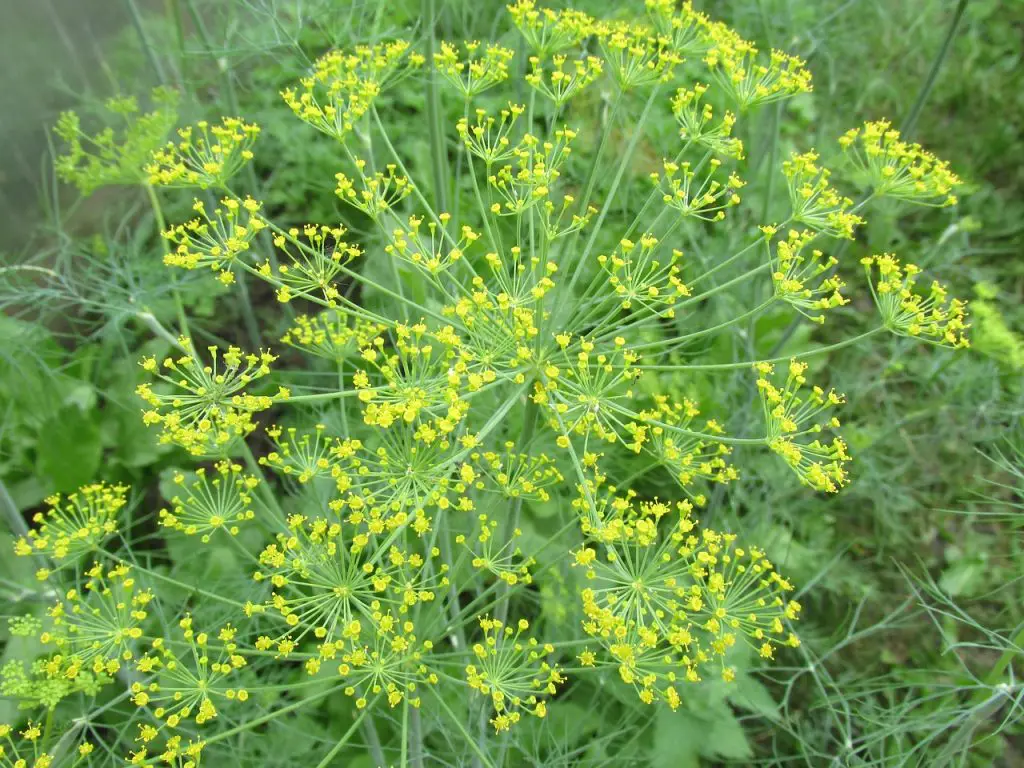
This herb is very beneficial for all brassicas, arugula included. Dill attracts good insects like parasitic wasps, ladybirds, hoverflies and bees. These in turn keep the pests away, whether it’s because they feel threatened by predators or just because of the high traffic flow we don’t know.
Chives and Arugula
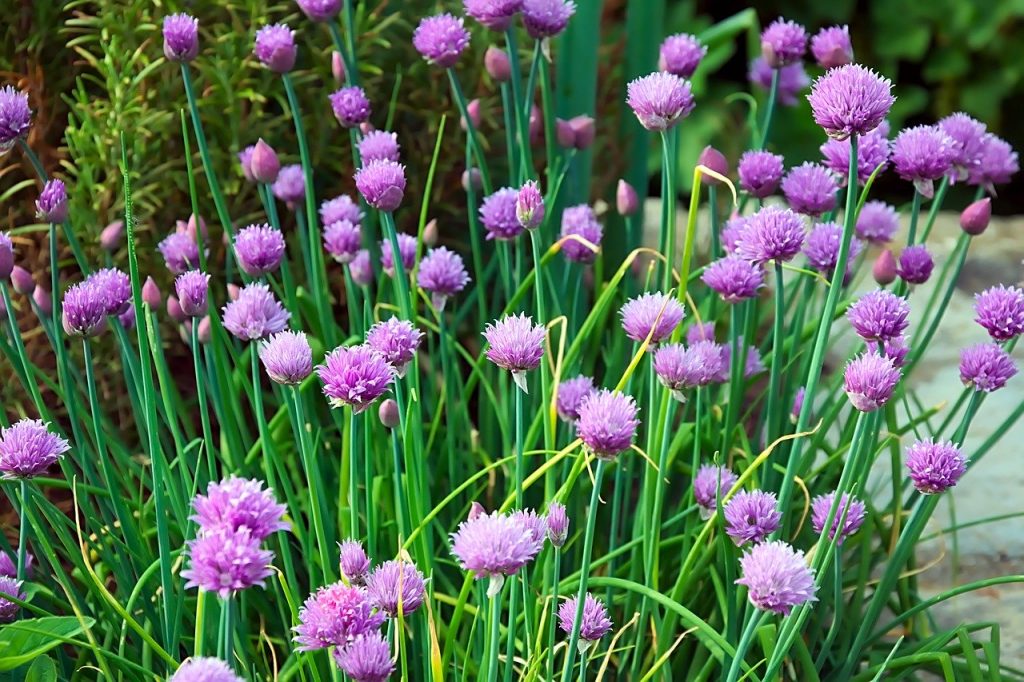
Just like onions and garlic, chives will help to prevent pests from damaging your arugula plants. The strong aroma from chives will disguise the arugula from cabbage whites and whiteflies. Allow chives to flower to atrract many useful pollinators, which will keep pests away due to high traffic.
Mint and Arugula
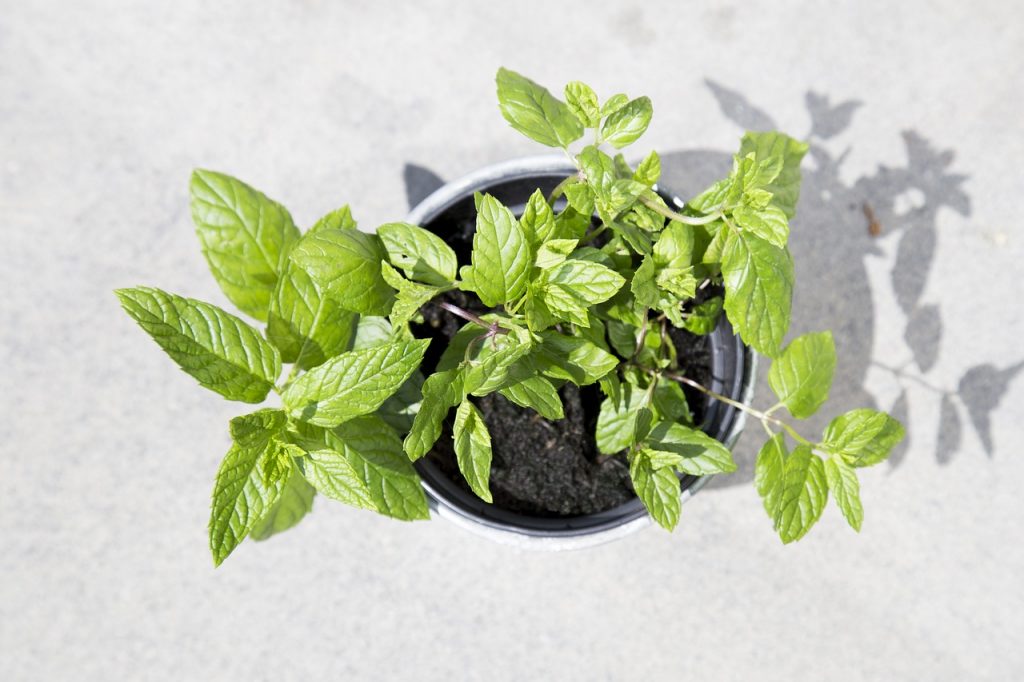
It is said that because of its strong aroma that mint will help to disguise the arugula from damaging pests like cabbage whites. This may well be the case but due to its vigorous habit, mint can very easily choke out the smaller arugula plants. If you do decide to use mint it’s best to keep it in pots.
Rosemary and Arugula
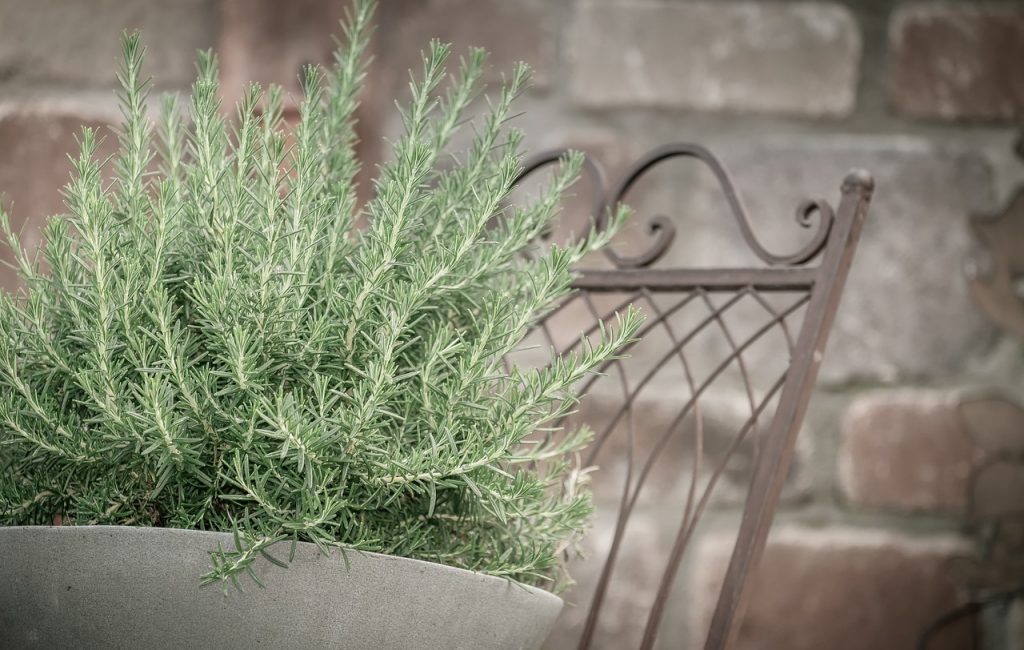
Another strongly aromatic herb, rosemary will also help to disguise arugula from damaging pests like cabbage whites. As rosemary is a plant that prefers dryer conditions it’s probably best to grow it in pots and place these around your arugula plants. To find out more about companion planting rosemary follow this link.
Thyme and Arugula
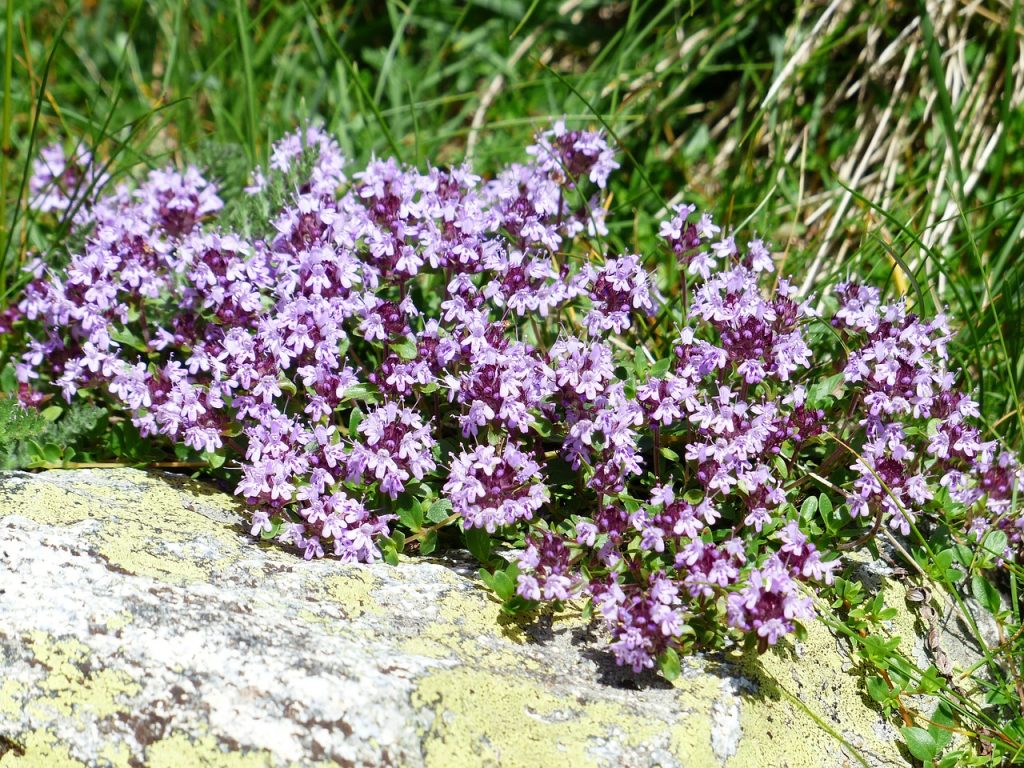
This low growing, fast spreading herb will attract many beneficial insects to your garden whilst disguising the arugula from cabbage white butterflies and whitefly. Another herb that prefers dryer conditions and will probably do better in pots.
Chamomile and Arugula
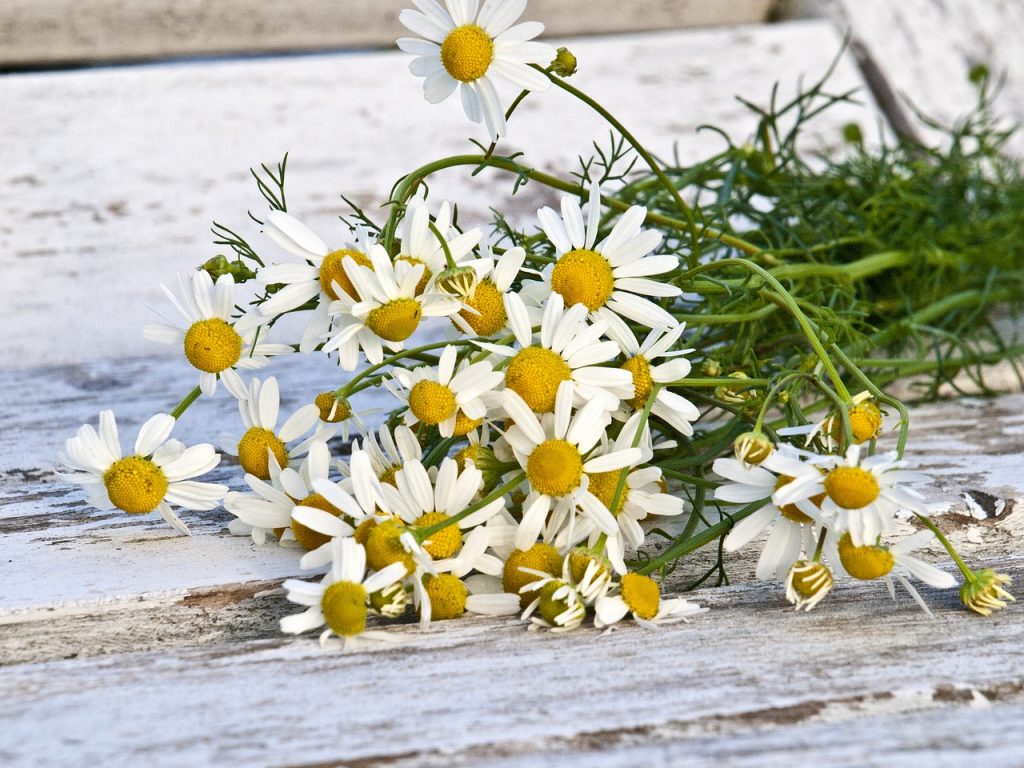
As well as being considered a tonic for anything growing near it, chamomile is also a great attractor for bees, wasps and hoverflies. These great pollinators will also keep away pests from your arugula. Plus it’s quite aromatic so will also help to disguise your arugula from the dreaded cabbage white.
Flowers As Sacrificial Crops
We often hear of growing sacrificial crops, what does it mean? Well basically what it says, you grow a plant close to the plants you want to keep, knowing full well that these sacrificial plants will attract the bad guys. Allowing you to despatch the offending insects by squashing or in severe cases, destroying the whole plant, pests and all.
Nasturtiums and Arugula
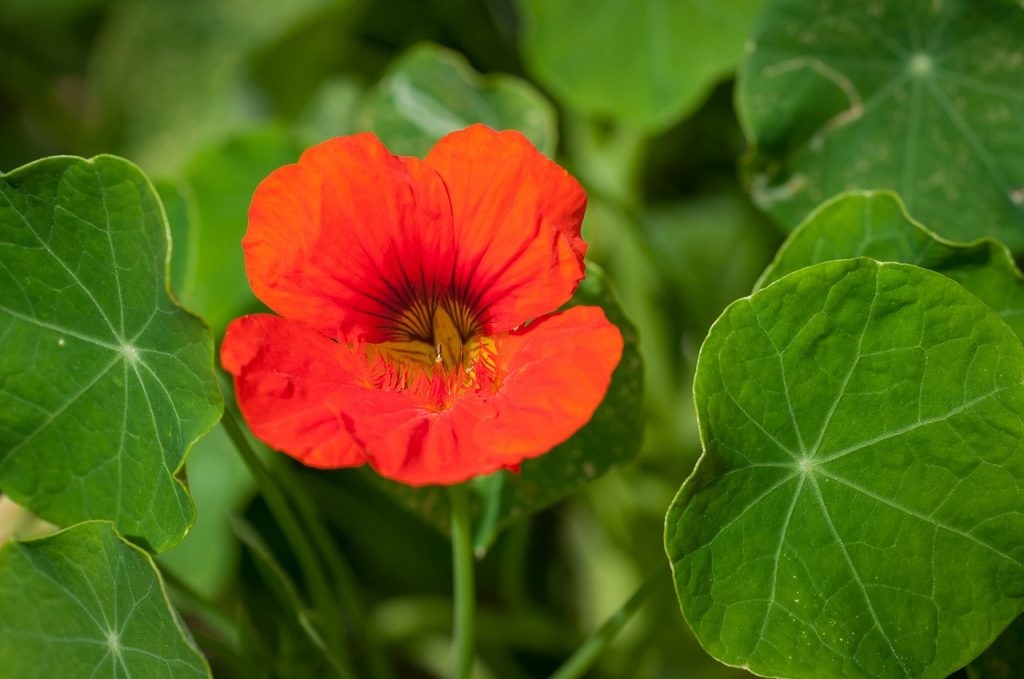
For reasons known only to themselves, aphids can’t get enough of the nasturtium plant. By growing them as companion plants to arugula you will find the aphids will flock to the nasturtiums and leave your arugulas alone. For more on companion planting nasturtiums click here.
Petunias and Arugula
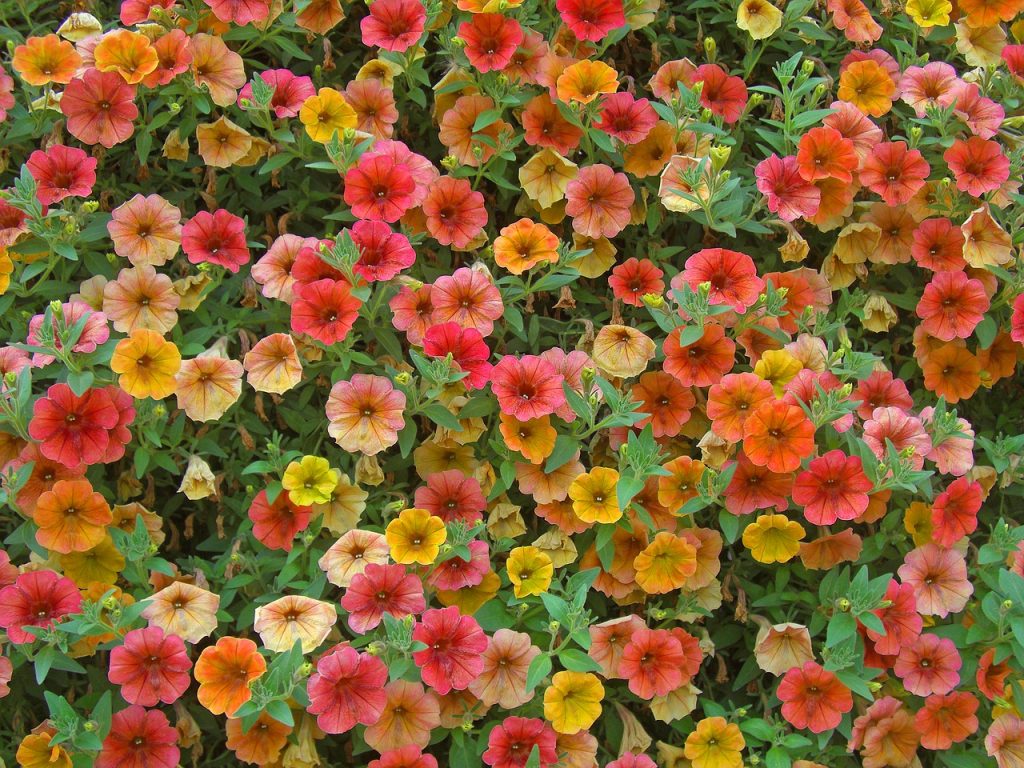
Pretty flowers in a variety of colours, petunias are known to repel leafhoppers, aphids and garden pests in general. They’ll grow well amongst the arugula and make a pretty display too.
Poached Egg Plants
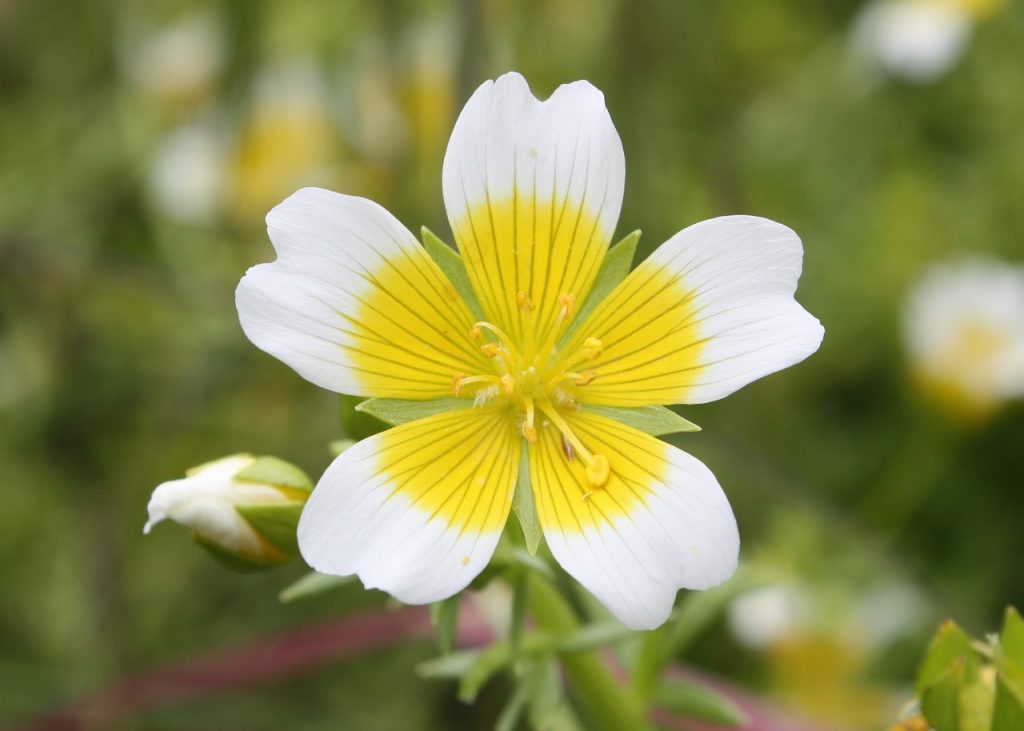
If you want to attract hoverflies to your garden and believe me, you do, grow some poached egg plants. Hoverflies love them and the larvae of the hoverfly loves aphids, so you can’t lose. Grow poached egg plants around your arugula to keep the aphids away.
To find out all about poached egg plant companion planting click here.
What not to grow with arugula
Not all companions are beneficial and there are some plants that shouldn’t be grown with arugula. These include:-
Tomatoes and Arugula
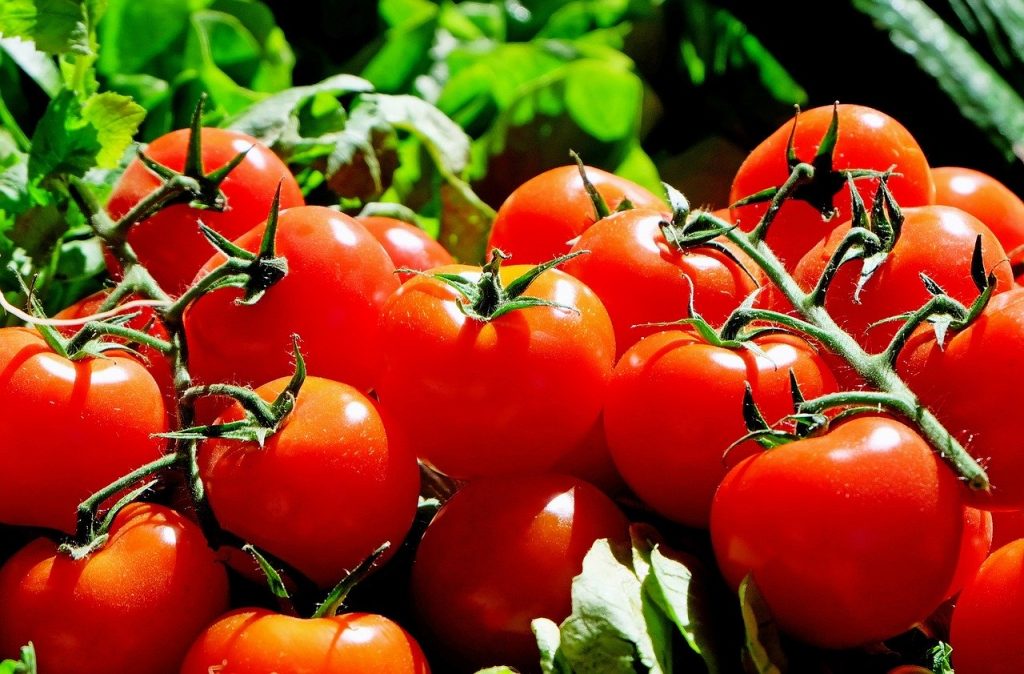
Sadly these two plants just don’t get on at all. Growing them near each other will result in poor growth of both plants. This is the same for all members of the nightshade family.
Peppers and Arugula
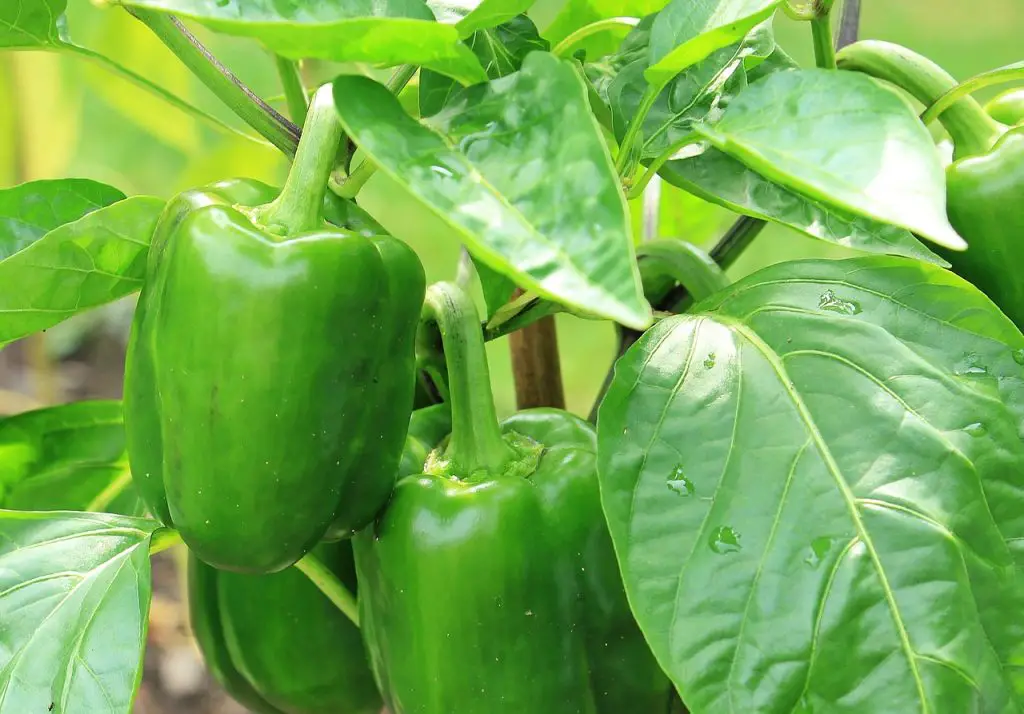
Just like tomatoes, peppers and chilli peppers will not do well growing near arugula and nor will the arugula.
Aubergines (Egg Plants) and Arugula
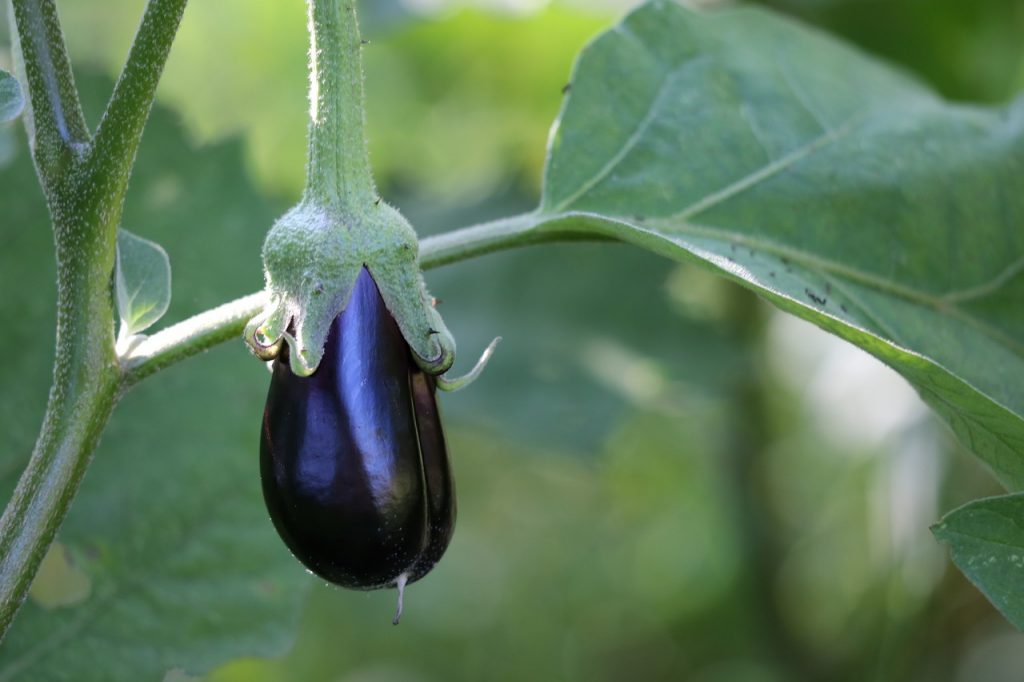
Another bad combination, planting these two together will stop either plant growing well.
Potatoes and Arugulas
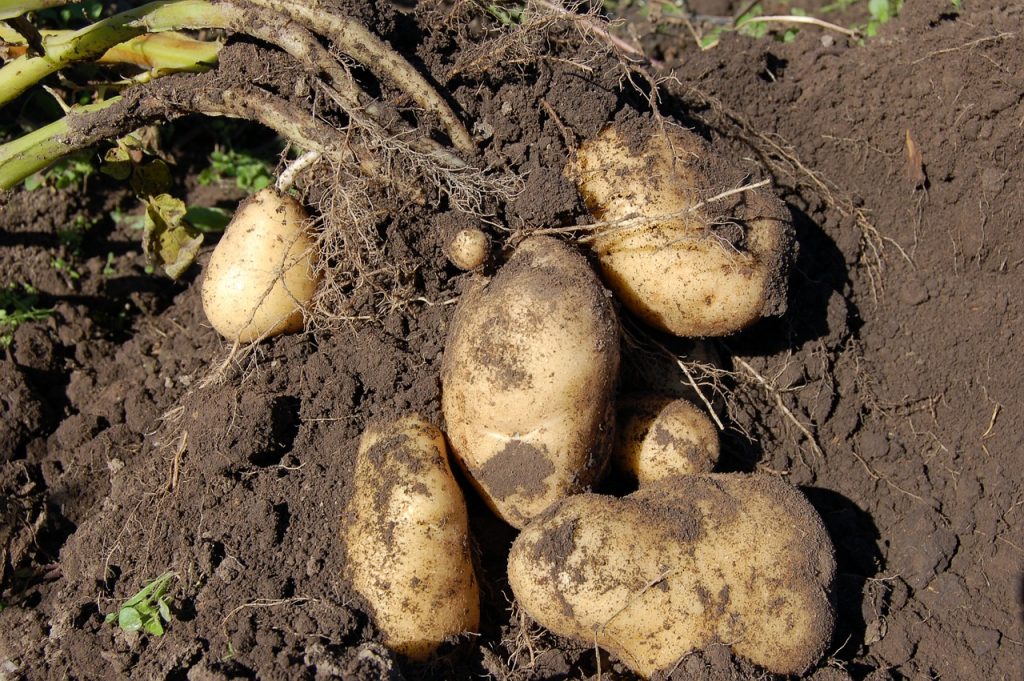
All members of the nightshade family are heavy feeders, and this makes it detrimental to grow any of them in companion with arugula.
Strawberries and Arugula
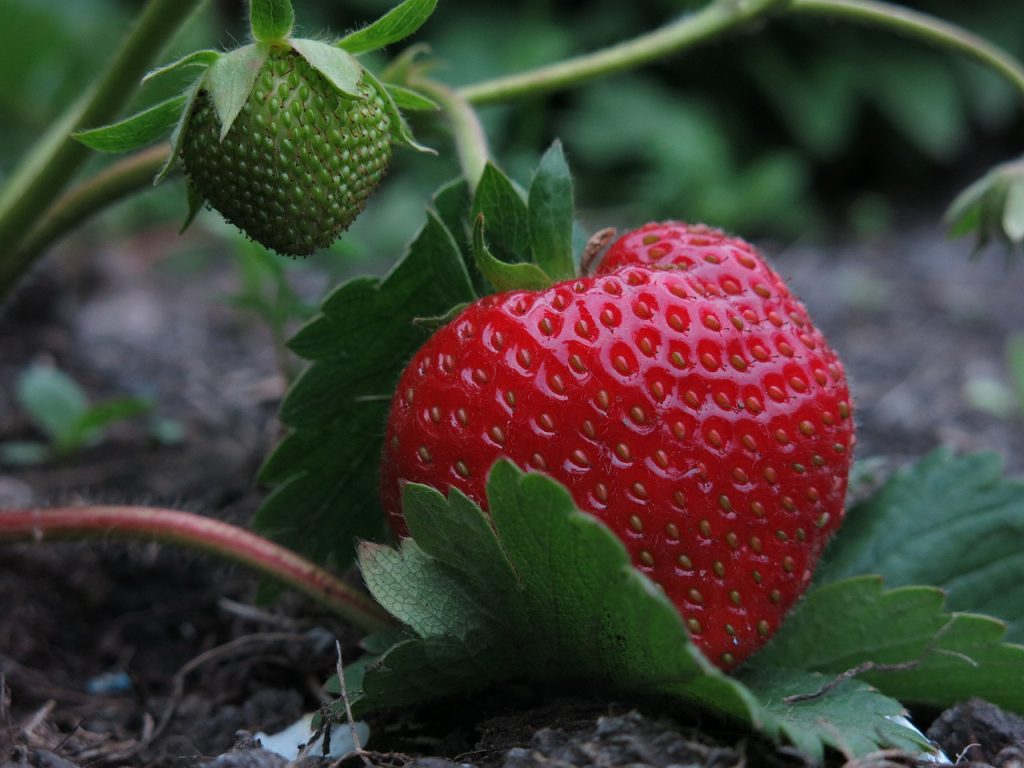
These two will also stop each other from developing properly and will result in both plants failing.
How To Grow Arugula
Arugula is a relatively easy plant to grow and will grow in almost any soil. That said it prefers soil that has had well rotted manure or compost added and is free draining. Seeds should be sown around 1/4 inch deep, one inch apart with rows around 10 inches apart.
Where To Grow Arugula
Plant outdoors either directly in the soil or in window boxes or pots. Grow in full sun or partial shade.
When To Grow Arugula
As soon as the soil can be worked in Spring, you can sow arugula seeds and then, in succession every two weeks for a constant supply. Remember that arugula is prone to bolt in hot, dry conditions, so keep well watered and give adequate shading.

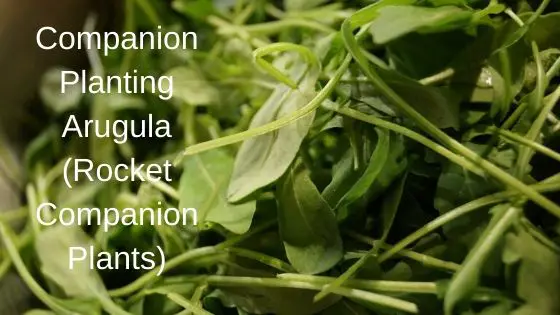
Thank you very helpful.
Thank you Carole for taking the time to comment.
All the best
Steve